The Embraer EMB 312 Tucano is a Brazilian aircraft that has found use around the world as an affordable training and light attack aircraft.
Gallery:




Features:
- Recreated with blueprints
- Brazilian Air Force (Força Aérea Brasileira) livery
- Fairly realistic performance
- A cool cockpit that may or may not be VR compatible
- Front and back seat cameras
- FN HMP gun pods and SBAT rockets
Nonstandard Controls:
- AG 1 Emergency Jettison Ordnance
- AG 2 Activate Nose Wheel Steering, then yaw to use
- VTOL for flaps
- Trim for trim
Notes:
- Fly with mouse as joystick
- You may have to yaw on takeoff to counteract the torque of the propeller
- All the newer features (fuselage slicing, text labels, hollow fuselages) were hugely helpful here to keep the part count down
- This aircraft is really a joy to just fly around, no weapons needed. But I included them anyway because people like blowing stuff up
- Expect a Super Tucano in your future
Background:
In the late 1970s, the Brazilian Air Force was looking to replace its T-37 trainer aircraft. The price of oil was increasing, and a propeller-driven aircraft that was locally produced would be cheaper to operate than a jet-powered foreign aircraft. The Brazilian aircraft manufacturer Embraer put forward a proposal, the EMB 312, that was accepted. The first prototype flew in 1980, and testing continued into the early 1980s. The aircraft was named Tucano, or Toucan, and adopted into Brazilian service as the T-27 and AT-27 for the training and attack roles, respectively. It also became the primary demonstration aircraft of the Smoke Squadron.
The Tucano featured a number of innovations for a trainer aircraft of its time. These included a turboprop engine, tandem seating, ejection seats, and a frameless canopy. The aircraft was both maneuverable and stable at low speeds, which meant it was an excellent platform for low level bombing and strafing attacks. The Tucano found huge success in the export market, being sold throughout South America, Africa, the Middle East, and Europe. Used in the role of counter-insurgency, or COIN, the aircraft saw combat with a number of these operators.
An improved model, the EMB 312H, was researched. This research, combined with lessons learned from the Tucano’s combat use, formed the basis of a successor aircraft. This aircraft would become the EMB 314 Super Tucano. The Super Tucano would replace the basic Tucano in the attack role for Brazil and a number of other countries. Nonetheless, the basic Tucano remains in use around the world.
Specifications
Spotlights
- DeathStalker627 2.8 years ago
- Bife 2.8 years ago
- RicardoACE 2.8 years ago
- TheGoldenEagle55 3.3 years ago
- Dragoranos 3.3 years ago
General Characteristics
- Successors 3 airplane(s) +218 bonus
- Created On Windows
- Wingspan 38.0ft (11.6m)
- Length 32.9ft (10.0m)
- Height 11.8ft (3.6m)
- Empty Weight 6,620lbs (3,003kg)
- Loaded Weight 7,850lbs (3,561kg)
Performance
- Horse Power/Weight Ratio 0.094
- Wing Loading 36.4lbs/ft2 (177.8kg/m2)
- Wing Area 215.6ft2 (20.0m2)
- Drag Points 1271
Parts
- Number of Parts 354
- Control Surfaces 5
- Performance Cost 1,591

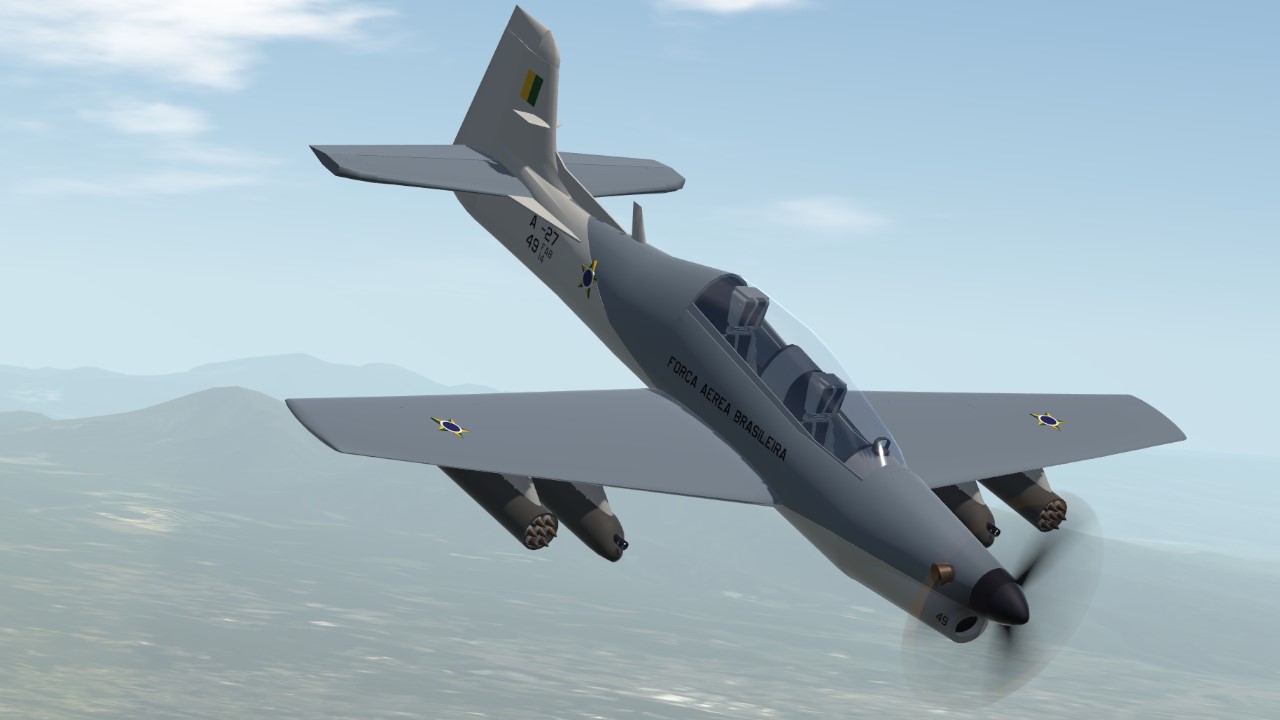
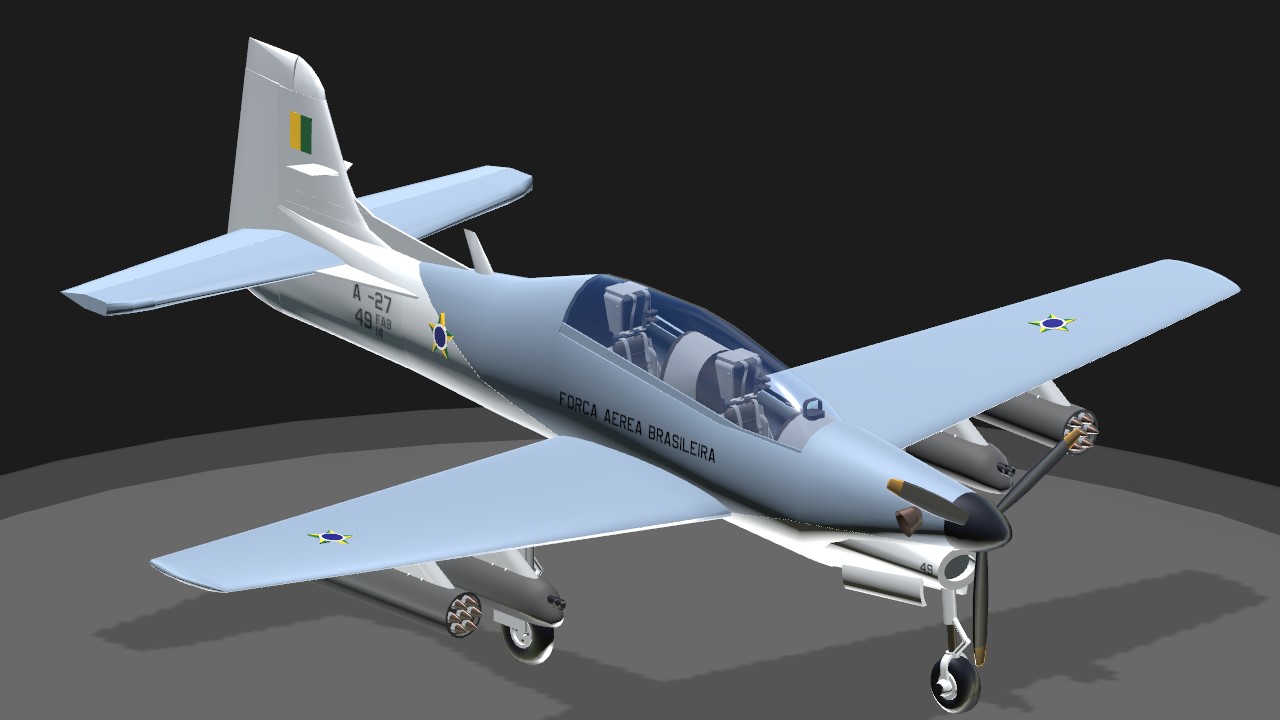
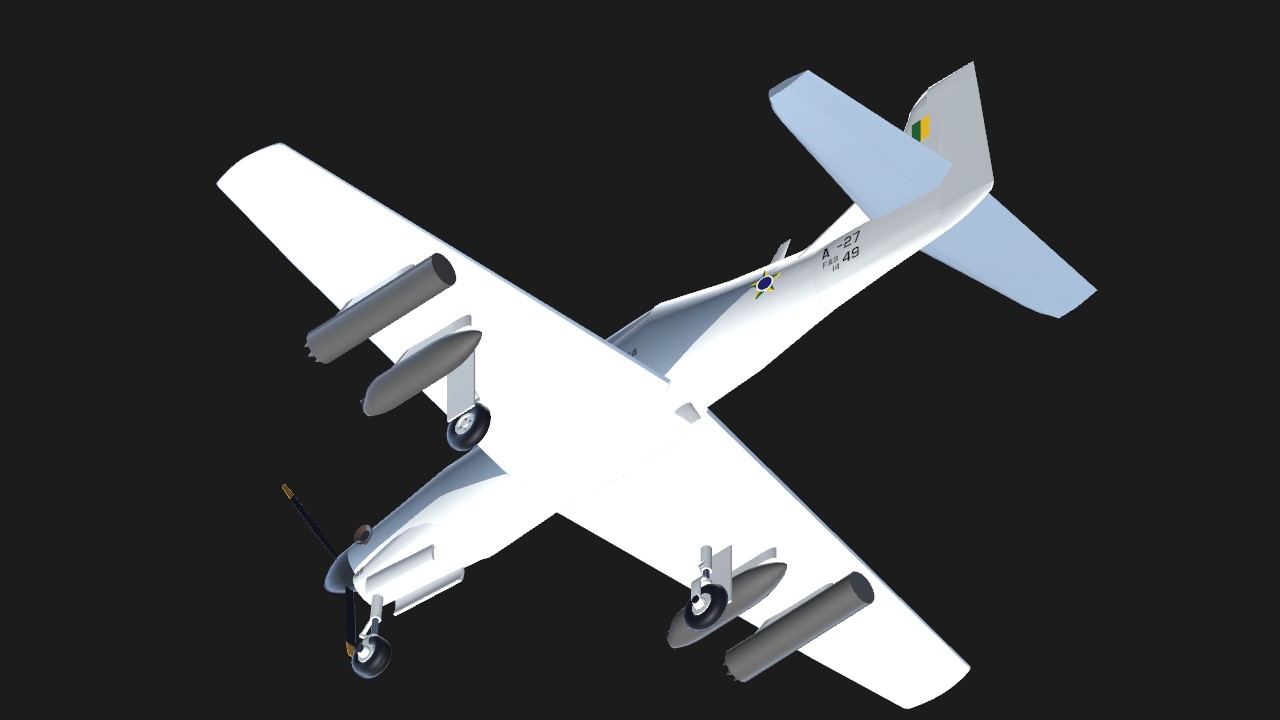
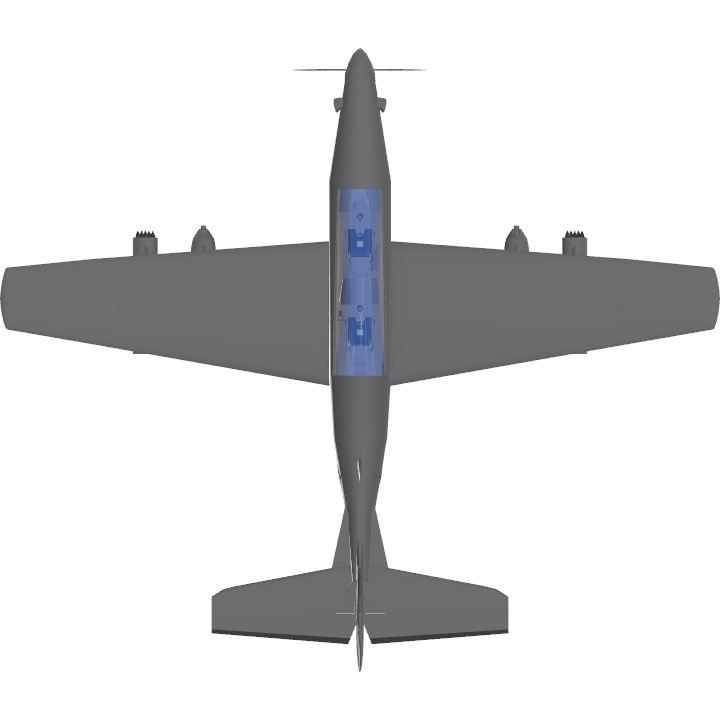
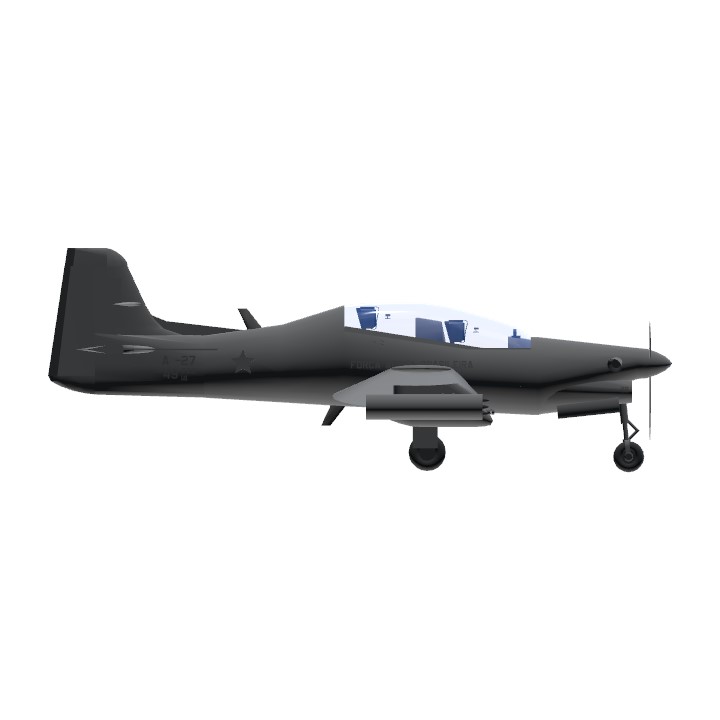
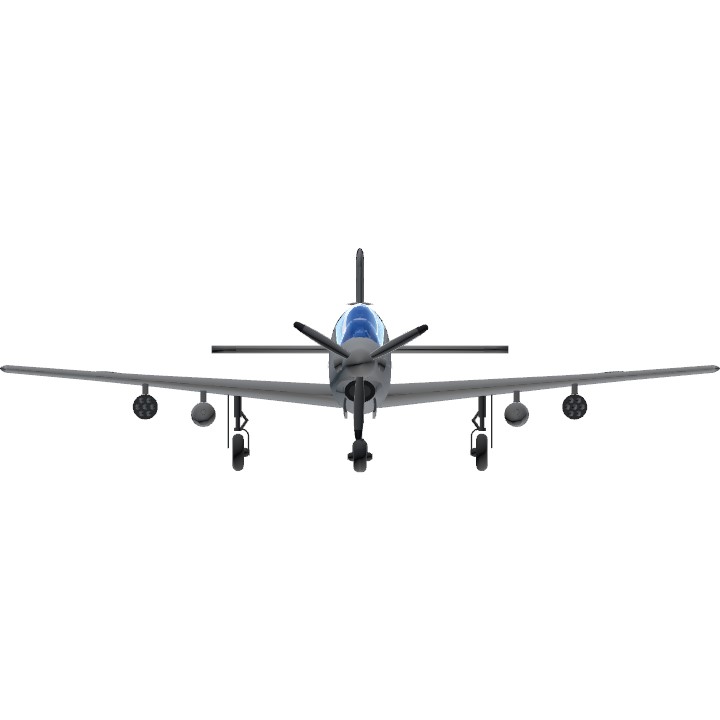
parabens ficou top!
congratulations, I was even going to give you a spotlight (which wouldn't do much because I have few followers) but it would help, I just forgot how to do it, lol great plane, simply amazing
Quality stuff for amazing mobile friendliness. Amazing.
Really Nice! Love from Brazil!
As a Brazilian, I must say this:
Ótimo!